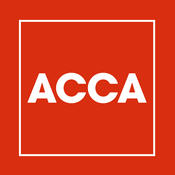Integrated thinking helped organisations remain resilient during pandemic, ACCA analysis finds

Analysis of fourteen company’s annual integrated reports by the Association of Chartered Certified Accountants (ACCA) has revealed that while there are clear opportunities in integrated thinking to help define purpose and understand value creation, the proliferation of reporting frameworks, recommendations and standards is making the task of writing an engaging and meaningful report more difficult.
Invisible threads: communicating integrated thinking highlights the progress made, alongside the key challenges preparers face with important new areas of reporting, such as climate-related disclosures.
ACCA’s main recommendation for preparers of an integrated report is to collaborate and plan with a cross-functional, cross-organisational team.
Using the International <IR> Framework, the aim of an integrated report is to show how an organisation’s strategy, governance, performance and prospects lead to the creation, preservation or erosion of value.
Therefore, preparing an integrated report demands integrated thinking. This needs to shine through in the communication of the organisation’s strategy, in discussions about the capitals – the key financial and non-financial value drivers for the organisation such as financial, human and natural capitals; and through consistency between the narrative report and the financial statements.
Yen-pei Chen, author of Invisible threads and ACCA’s Integrated Reporting subject matter expert, said: “Our research shows that integrated thinking – or at least its representation in the report – is still developing within businesses, making it difficult to communicate a truly embedded management approach.
“The consistency and connectivity between the narrative report and the financial statements will come under increasing scrutiny as the IFRS Foundation sets up a Sustainability Standards Board to operate alongside the International Accounting Standards Board (IASB). Momentum is also gathering on the implementation of the TCFD recommendations, with the aim of incorporating climate-related financial disclosures in mainstream annual reports.
“Consistency between narrative reporting and financial reporting is also an indicator of integrated thinking: demonstrating whether a forward-looking approach to creating value is really reflected in the way the organisation performs against its declared strategy.”
Helen Brand, ACCA’s chief executive, commented: “With organisational resilience tested to unprecedented limits over the past year, readers of annual reports need transparent insights now more than ever. By re-examining how they communicate their intention and thinking in the most comprehensible way, reporters have an important opportunity to forge firmer connections with their stakeholders, on whom they rely for their continued existence. And, through telling their corporate story with clarity and conviction, show how business can be a force for positive progress in a changed, and changing, world.”
A reporting strength amongst the 14 organisations’ reports were clear disclosures around risks and opportunities, connecting these to performance and strategy.
However, many organisations are still working out the best way to embed the multi-capitals concept, meaning discussions about key value drivers can be uneven and disjointed. Chief among the areas where improvements should be prioritised is reporting on governance.
Yen-pei Chen added: “This governance angle is of particular concern, continuing, as in previous years, often to be too compliance-focused, lacking strategic focus and failing to demonstrate the board’s stewardship over the capitals. This suggests that either integrated thinking is not yet embedded at the board level, or the integrated thinking process is not being meaningfully reported.”
ACCA also analysed conciseness of reports as this may be an indicator of good integrated thinking. While six reports (43%) were under 100 pages, four of the reports (29%) were very long (over 200 pages).
Yen-pei Chen concluded: “Harmonisation within the reporting landscape is important and may well be in sight, with the upcoming merger of the IIRC and SASB, as well as welcome announcements from the IFRS Foundation about international non-financial reporting standards. However, this is not just a matter of aligning frameworks and standards.
“Organisations globally need to define their purpose, and understand how, and for whom, they are creating value. From there, materiality assessments - involving people across the organisation as well as external stakeholders - can serve not only to identify what needs to be reported, but importantly, what value drivers need to be actively managed. This collaborative process can, in itself, be the source of benefits for years to come.”










